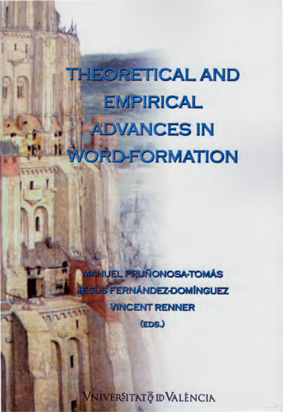Word-formation in original and translated English: source language influence on the use of un- and less
DOI:
https://doi.org/10.7203/qfilologia.18.3279Paraules clau:
English negative affixes, translated language, non-translated language, monolingual comparable corpora of translated texts, source language influence Resum
Resum
This article aims to assess whether the word-formation features of translated language, as opposed to original language, are source language (SL)-dependent or translation-related. To do so, we analyze the use of the -less and un- negative affixes in original English and in English translated from four SL: French, Italian, Dutch and German. Findings based on the Europarl corpus show that the use of -less and un- in translated English is partially SL-dependent.  Descàrregues
Descàrregues
Descàrregues
Com citar
-
Resum478
-
PDF 146
-
PDF (Español)146
-
PDF81
Número
Secció
Llicència
 Este obra está bajo una licencia de Creative Commons Reconocimiento-NoComercial-SinObraDerivada 4.0 Internacional.
Este obra está bajo una licencia de Creative Commons Reconocimiento-NoComercial-SinObraDerivada 4.0 Internacional.
Tots els documents inclosos a OJS són d'accés lliure i propietat dels seus autors i/o institucions editores, i per tant, qualsevol acte de reproducció, comercialització, comunicació pública o transformació total o parcial necessita el consentiment exprés i escrit d'aquests.
Authors who publish with this journal agree to the following terms:
- Authors retain copyright and grant the journal right of first publication with the work simultaneously licensed under a Creative Commons Attribution License that allows others to share the work with an acknowledgement of the work's authorship and initial publication in this journal.
- Authors are able to enter into separate, additional contractual arrangements for the non-exclusive distribution of the journal's published version of the work (e.g., post it to an institutional repository or publish it in a book), with an acknowledgement of its initial publication in this journal.
- Authors are permitted and encouraged to post their work online (e.g., in institutional repositories or on their website) prior to and during the submission process, as it can lead to productive exchanges, as well as earlier and greater citation of published work (See The Effect of Open Access).



